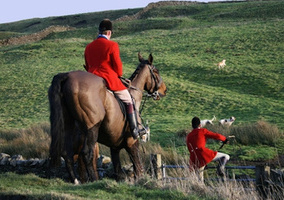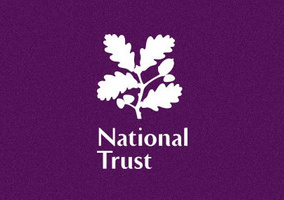Anyone picking up a newspaper, scrolling through social media, browsing the internet or turning on the radio could be forgiven for assuming that the National Trust is in the middle of a brutal civil war.
There has been a flurry of attention recently, connected to its recent annual general meeting (AGM), but the Trust has been under increasing scrutiny from politicians and the media for a number of years.
The Trust has found itself the focus of criticism connected to its work investigating links to slavery, LGBT inclusivity work and exhibitions celebrating women. In the last 12 months, this has led to the Trust’s motives being questioned by Conservative MPs, although the Charity Commission ultimately found that trustees had handled things properly.
Critics accuse it of being “too woke”, lecturing visitors and being disrespectful.
Earlier this year Restore Trust, a campaign group trying to force the charity’s leaders to change course, was formed to challenge the current leadership. The group argues that “the senior leadership of the Trust is no longer up to the task of protecting, preserving and promoting Britain’s magnificent heritage”.
Despite its efforts to force change at the AGM, none of its resolutions were passed, although three of the group’s preferred candidates were elected to the charity’s council.
Meanwhile, there are other campaigners who argue that the Trust is too conservative and very much a part of the establishment. Members trying to ban the Trust from allowing trail hunting on its land scored an important victory at the AGM, with a landslide vote in their favour.
These arguments dominate media coverage of issues affecting the Trust, but do real members and real people actually care? The evidence suggests not. 98% of members didn’t bother to vote at the AGM.
What the media is saying
Firstly, let’s take a closer look at what is being said and written about the National Trust.
In the wake of AGM, conservative columnists leapt into battle.
Over at the Spectator, Charles Moore, a frequent critic, likened Hilary McGrady, chief executive of the National Trust, to Sir Keir Starmer and appeared to encourage people to rejoin the charity, so that at next year’s AGM there is more success for Restore Trust.
“This year a lot of people disgusted by the report [slavery and colonialism] and other denigrations of former owners and existing buildings left the Trust in protest,” he writes. “If they rejoined now and were active, they could help restore it to what it should be.”
Meanwhile, Simon Heffer in the Telegraph accused the Trust of “prefer[ing] to spend its money engaging in political activity” and “using heritage as a weapon”. He concluded: “The battle for its future may only have just begun.”
Discussion is not confined to columns in the right-wing press. On the morning of the AGM, Neil Bennett, a founder of Restore Trust, and Simon Jenkins, a former National Trust chair, were invited on to BBC Radio 4’s Today programme. But no-one from the current leadership was present in the debate.
Opening the segment, the presenter described the Trust as facing “quite a moment”. While Jenkins emphasised the importance of the Trust adapting and described debates as “utterly healthy”, Bennett accused the charity of “trampling on our history” and said his mission was to make the Trust listen to members.
What the charity’s accounts say
Is there any merit in the suggestions that members are frustrated? One source would be the Trust’s annual report, which explains how its membership has changed over the year.
Naturally, the Covid pandemic has had an impact on both membership and overall visitor numbers, but there is nothing that suggests outrage over the direction the charity is heading in has so far led to significant decline in members.
While there has been a drop off in member numbers, the Trust puts this down to being unable to open its properties for parts of the year, because people often join while they are visiting a property.
The trustees’ annual report is relatively upbeat, stating: “We closed the year with 5.4 million members, a drop of just over 0.5 million, caused mostly by not being able to carry out face-to-face recruitment at Trust places.
“We are delighted that we have seen a small but consistent growth in membership since the end of the financial year.”
Trustees were also “heartened” by renewal rates, which were consistent with the previous year at 84.2%.
‘What a rip off!’
Another way to understand what members and non-members think about the Trust is to look at the reviews people leave online.
These paint a less positive picture, with the National Trust scoring just 1.7 out of 5 on TrustPilot. This could be because people are more likely to leave a review if they have had a poor experience, and indeed English Heritage, a similar kind of charity, has similar rating (2.1).
Looking at the most negative, “very bad”, reviews on Trustpilot, for the last six months, it is clear that some people have had poor experiences.
The vast majority, 46, of negative comments seem to be caused by poor services, whereas just nine explicitly mentioned the leadership’s “woke” agenda as a source of frustration. It’s also worth noting that seven complained about the trail hunting position and one suggested the charity was not progressive enough. So, in a sense, the two camps cancel each other out.
Real people, it seems, are more concerned about car park charges, the quality of the tea room and how easy places are to access.
“What a rip off! Cannot believe increase in charges just to access car park,” one review said.
There is also criticism of the booking system, with one reviewer saying: “During Covid all of the National Trust places closed. Memberships were not cancelled nor put on hold – we were still expected to pay. Then when National Trust sites did start re-opening, they started using a ridiculous booking system with no priority bookings to members who had been paying their memberships for months and months when everywhere was closed.”
Rudeness is another big gripe for visitors. One reviewer reported that the tea room manager was “very rude to my children” and her own colleagues. “She walked about the place shouting and swearing at staff. I felt very sorry for them.”
Positive reviews
Having said that, online reviews also offer an insight into why people do enjoy visiting the National Trust properties.
The themes in the positive reviews mirrors that of the negative ones. Real people are concerned about service and refer to the tea rooms, shops and people they interact with during their visit, with just a handful expressing support for things such as the slavery report.
One said: “The young lady in charge of all food and drink, was completely on her own with a huge queue, which she got through with a quiet efficiency. Not flustered in any way and nobody flustered her.”
Others praised “knowledgeable” and “cheerful” volunteers.
Taking back control of the narrative
So, what, if anything, should the National Trust do?
Arguably the most sensible thing to do is avoid public disagreements with Restore Trust because it feeds the narrative around the scale and nature of dissatisfaction.
However, the Trust should not ignore concerns of members and visitors. With 98% of its members not participating in the recent AGM, trustees should ask themselves whether the charity’s governance is fit for purpose.
For as long as only a tiny fraction of members take part in votes, the charity risks them becoming used by an increasing number of splinter groups to push their own campaigns. Furthermore, the votes themselves, which are non-binding in any case, carry less legitimacy when turnout is so low.
Ultimately, if the National Trust wants to avoid being further dragged into culture wars, it must take control of the narrative and make sure that the silent majority, who care about scones and the gift shop, are properly given their say.
Related articles












